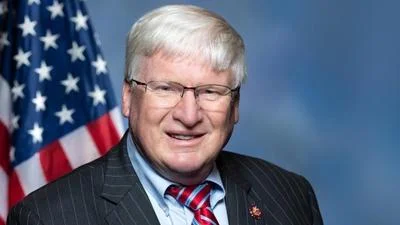Lee Snodgrass, Wisconsin State Representative for 52nd District | Facebook
Lee Snodgrass, Wisconsin State Representative for 52nd District | Facebook
According to the Wisconsin State Legislature's official website, the bill was described as follows: "a refundable income tax credit for bicycle purchases and making an appropriation. (FE)".
The following is our breakdown, based on the actual bill text, and may include interpretation to clarify its provisions.
In essence, the bill establishes a refundable income tax credit for individuals purchasing bicycles, including electric bicycles, for their dependents. The credit covers the bicycle's purchase price up to $200 per dependent, available to those with a family income not exceeding 200% of the federal poverty line. The credit can be claimed for taxable years beginning after December 31, 2024, and requires documentation of the purchase price to be submitted with the tax return. If the credit exceeds tax liability, the surplus is refunded. Part-year residents and nonresidents are ineligible, and the credit cannot be claimed for tax years shorter than 12 months, except in the event of the taxpayer's death.
The bill was co-authored by Senator Chris Larson (Democrat-7th District), Representative Mike Bare (Democrat-80th District), Representative Brienne Brown (Democrat-43rd District), Representative Ryan M. Clancy (Democrat-19th District), Representative Ben DeSmidt (Democrat-65th District). It was co-sponsored by Senator Kristin Dassler-Alfheim (Democrat-18th District), Senator Melissa Ratcliff (Democrat-16th District), and Senator Kelda Roys (Democrat-26th District), along 16 other co-sponsors.
Lee Snodgrass has co-authored or authored another 61 bills since the beginning of the 2025 session, with all of them being adopted.
Snodgrass graduated from the University of Wisconsin-Madison in 1991 with a BA.
Snodgrass, a Democrat, was elected to the Wisconsin State Assembly in 2025 to represent the state's 52nd Assembly district, replacing previous state representative Jerry L. O'Connor.
In Wisconsin, the legislative process starts when a senator, constituent, group, or agency proposes an idea for a bill. After drafting, the bill is introduced, numbered, and referred to a committee for review and public input. If approved, it moves through three readings and votes in both the Senate and Assembly. Once both chambers pass the same version, the bill goes to the governor, who can sign it, veto it, or let it become law without a signature. Only a small share of bills introduced each session ultimately become law. You can learn more about the Wisconsin legislative process here.
| Bill Number | Date Introduced | Short Description |
|---|---|---|
| AB333 | 07/08/2025 | A refundable income tax credit for bicycle purchases and making an appropriation. (FE) |
| AB332 | 07/08/2025 | Requiring vehicles to stop for pedestrians at certain intersections and crosswalks |
| AB314 | 06/06/2025 | Adopting gender-neutral terminology and incorporating gender-neutral marriage and parentage rights. (FE) |
| AB291 | 05/30/2025 | Native prairie and forage plants |
| AB290 | 05/30/2025 | Special registration plates to support protecting pollinators and making an appropriation. (FE) |
| AB289 | 05/30/2025 | Ban on the use of certain insecticides by the Department of Natural Resources |
| AB288 | 05/30/2025 | Labeling plants as beneficial to pollinators. (FE) |
| AB287 | 05/30/2025 | Local regulation of pesticides to protect pollinators |
| AB246 | 05/08/2025 | Cost-sharing caps on prescription drugs and medical supplies to treat asthma under health insurance policies and plans. (FE) |
| AB227 | 04/23/2025 | Inducements to sign or refrain from signing nomination papers, recall petitions, and certain other petitions |
| AB224 | 04/23/2025 | The form of referendum questions |
| AB215 | 04/23/2025 | Eliminating the publication requirement for a name change petition seeking to conform an individual’s name with the individual’s gender identity |





 Alerts Sign-up
Alerts Sign-up